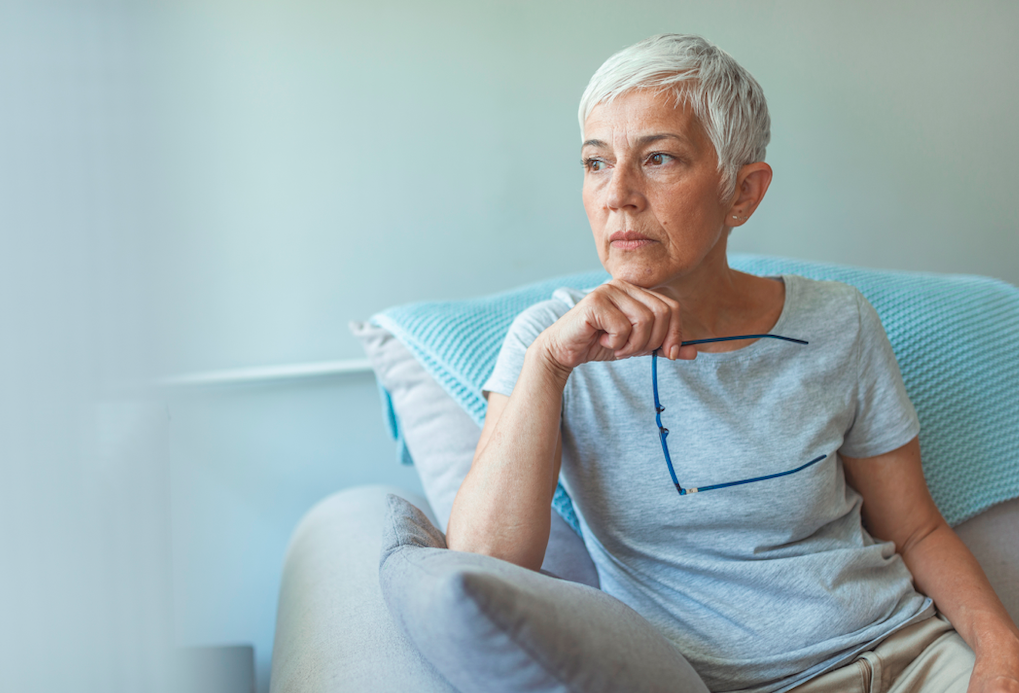Preserving Your Brain Health While in Isolation
by Women's Brain Health Initiative:
We've been thinking about you.You’ve likely never experienced anything like what we’re witnessing now. In a matter of days, our lives have been turned upside down by the COVID-19 coronavirus.Women’s Brain Health Initiative (WBHI) has been touched in its own way. As the pandemic took hold, we quickly realized that we had to postpone our From Her Lips to Our Ears™ event, originally scheduled for March 31 in Toronto. This year’s annual signature event featured eight-time Juno Award winning singer-songwriter and actress Jann Arden in conversation with CTV’s Anne-Marie Mediwake and has now been moved to a tentative date of November 4th.
Our Healthy Bodies, Healthy Minds event that was scheduled for May 7 in Vancouver will now be held on October 29. The Engaging Millennial Minds® gathering on the brain health benefits of cannabis that we had planned for April 29 has been moved to late September. And our biennial Raising the Bar event which celebrates what we have accomplished for advancing women's brain health and honours those catalysts that have been instrumental in our success, originally planned for the end of May will now take place in the fall.We say all of those dates with fingers crossed and high hopes that the public health measures we are all taking will allow us to start gathering again, carefully, in a few months. We will keep you up to date with developments.
WBHI was created to address a different health challenge, Alzheimer’s, and the unique risks to women. Dementia is a slow-moving tsunami that threatens to swamp us in the years to come, unlike the pandemic which crashed onto our shores with stunning swiftness. Both have devastating consequences, and both need to be attacked through funding scientific research, supporting our health care systems, and by learning everything we can about how to protect ourselves.A central part of our mandate is to share the best information and advice about how to preserve brain health. Science tells us that dementia need not be an inevitable element of aging. Lifestyle choices can make a real impact on decreasing our risks. We have been sharing this type of information through our biannual Mind Over Matter® magazine, and thanks to our partner Brain Canada, our 10th anniversary edition is still on track for a May distribution. Volume 10 cover features CTV’s Anne-Marie Mediwake and her mom Muriel. If you’d like your own copy, please mail us at MOM@womensbrainhealth.org.
As we deal with the stress and anxiety of social distancing, the need to reduce our risks resonates now more than ever. We must put an extra effort into taking care of ourselves. Those who are already experienced in working from home advise that we should build and maintain a structure to guide our housebound days, which should include time for aerobic exercise. Now that spring is taking hold, long walks or bike rides (while maintaining an appropriate distance) can get you out of the house, distract you from all the bad news and provide a dose of vitamin D—all of which are good for brain health, not to mention uplifting for your spirit. Take a water bottle with you so that you can stay properly hydrated.
Mental stimulation and social contact are not only good for the soul but good for our grey matter. Social distancing means we need to be more creative in stretching our brains and reaching out to friends and loved ones. Now might be the time to launch into an extra-large jigsaw puzzle or to learn how to use video conferencing technology so you can continue to converse with the people in your life. Tap into your creative side - start a journal or rediscover a craft. Gardening season is upon us, so step outside into the fresh air, get your hands dirty and launch into that horticultural project you’d been putting off.It seems the pandemic brand of cabin fever is prompting many people to start baking bread at home but take the time to also explore the Mind Diet, a variation on the Mediterranean diet, which is rich with fish, fruit, vegetables and olive oil. Combine it with the Dash Diet, which is low in sodium, important for dealing with hypertension. Even if you do not follow these religiously, including more of these foods into your daily routine can help reduce your risk of Alzheimer’s.
We also have the happy triumvirate of dark chocolate, coffee and red wine, which can not only put a smile on your face but reduce cognitive decline. Just remember that moderation is important—savour a glass of wine, not a bottle.While on the subject of pleasure, we will point out that there is evidence that regular sex may actually boost brain power, creating new cells in the hippocampus, the region where memories are stored. There is much speculation of a pandemic baby boom.
If so, those parents will have also done their brains a favour.COVID-19 is pumping up our stress levels, not helpful for brain health. Make a point of taking periodic breaks from the news, engaging in peaceful meditation and perhaps some gentle yoga exercises, with plenty of deep, calming breathing.With a plethora of streaming services, vast stocks of great movies and TV shows are available. We'd encourage comedies over tragedies (and both over the nightly news). A hearty laugh is powerfully therapeutic.We do not know how long the pandemic will last, but we believe it is teaching us important lessons about the need to prepare and plan for public health challenges and we hope you will use it as a motivator to take better care of your brains, your body and your mental health. As many have said throughout these difficult days, we are all in this together.
Please stay home and stay healthy.



